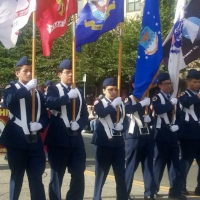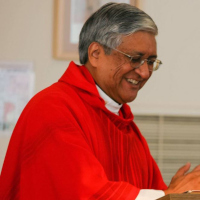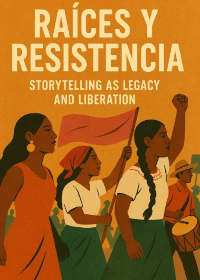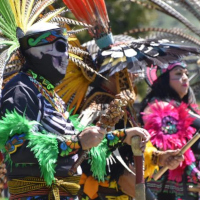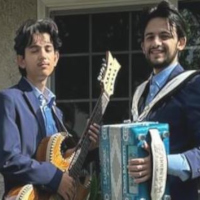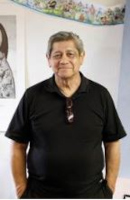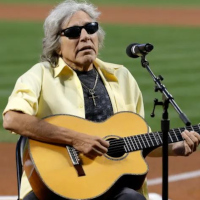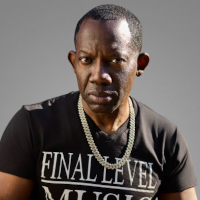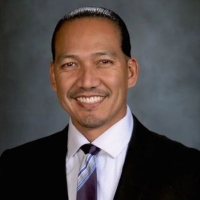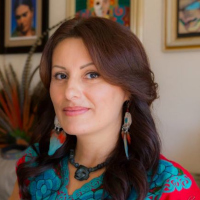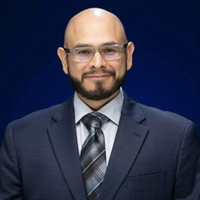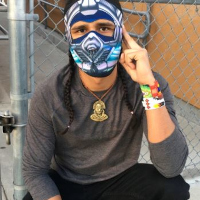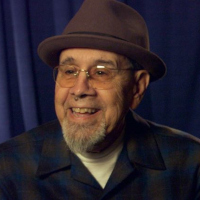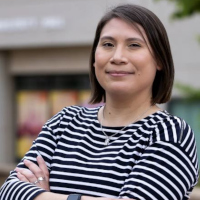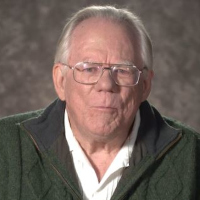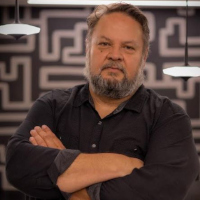LEAD Summit 2025 Program
"Telling Our Stories - Our Way, Our Voice:
Latino Representation in the Arts, Media, and Education"
LEAD Summit XIV
Friday, October 3rd, 2025
8:00 am - 2:00 pm
Santos Manuel Student Union – South
California State University, San Bernardino
Program Detail
- Red Carpet Interviews - Jeannette Sandoval & Alejandro Ramos-Barajas
- Entertainment / Saludo Artistico - Dee Jay MJ
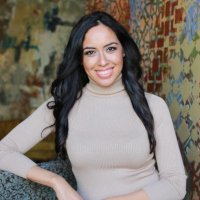
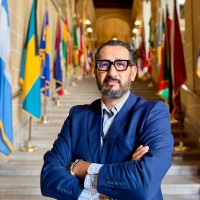
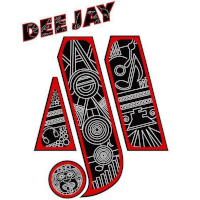
- Land Acknowledgement
- Color Guard Presentation - Air Force Junior ROTC, West Covina HS
- Pledge of Allegiance - Master Sergeant Eddie Caro (Ret.)
- U.S. National Anthem – José Feliciano, 2025 LEAD Padrino de Honor (archival video 10/7/68: Game 5 of the World Series between the Cardinals and Tigers)
- Invocation - Very Rev. Msgr. Gerard M. Lopez, STL, Vicar General, Diocese of San Bernardino
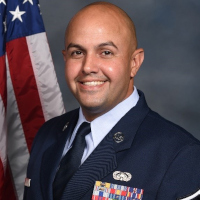
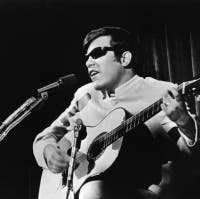
- Intercessors: Makuill Ollin Ocelotl, Aztec Dance Calpulli
- Grand Marshals: Bel Hernandez and Enrique Castillo, 2025 Annual César E. Chávez Memorial Padrinos de Honor
- Music: Chaparrón Norteño
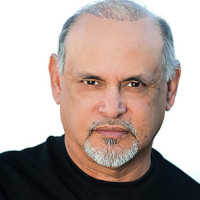
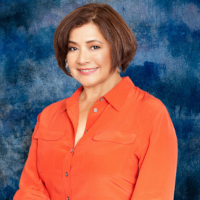
- Dr. Tomás D. Morales (video remarks)
President, California State University, San Bernardino - Dr. Chinaka S. DomNwachukwu
Dean, James R. Watson and Judy Rodriguez Watson College of Education, California State University, San Bernardino - Ignacio Gomez, Chicano Visual Artist and Muralist, and LEAD XIV Padrino de Honor
- José Feliciano, Guitarist, Singer, and Composer, and LEAD XIV Padrino de Honor (video remarks)
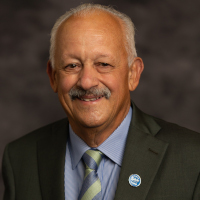
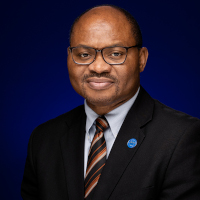
There is a less widely told—but absolutely essential—story in the history of West Coast hip hop: the role of Latino artists in shaping the culture, with a focus on brothers Henry “Hen-Gee” Garcia and Eric "Evil E" Garcia, pioneering DJs and MCs of Honduran Garífuna heritage.
When we talk about the origins of West Coast hip hop, the conversation often centers on household names like Ice-T, N.W.A, and the gangsta rap movement that exploded out of South Central Los Angeles in the late 1980s. But what often gets left out of that narrative is how deeply Latino communities—especially Afro-Latinos—were intertwined from the very beginning in building and defining hip hop culture on the West Coast.
Hip hop didn’t arrive in Los Angeles as a fully formed East Coast product. It evolved in parallel, through party crews, breakdancing circles, graffiti writers, and street-corner poets. It was shaped by the shared realities of Black and Brown youth living in neighborhoods marked by poverty, over-policing, systemic neglect, but also rich cultural pride and resilience. These youth took hip hop’s building blocks—MCing, DJing, breaking, and graffiti—and remixed them through their own lens, giving birth to a distinctly West Coast sound and style.
This is where Hen-Gee and Evil E Garcia enter the story. Born and raised in Brooklyn, New York, and migrating to the Los Angeles area as teenagers, Hen-Gee and Evil E brought with him the sensibilities of East Coast street culture and combined them with the rapidly evolving scene in LA. As Afro-Latinos of Garífuna descent—a culture rooted in African and Indigenous traditions from the Atlantic coast of Central America—they embodied a layered identity that reflected the multicultural reality of West Coast life. Their Afro-Latino background placed them at a unique cultural crossroads, and that intersection became central to their artistic voice.
Hen-Gee rose to prominence as part of Rhyme Syndicate, the influential hip hop collective founded by Ice-T. His older brother, Eric “Evil E” Garcia, served as Ice-T’s official DJ. The two brothers would later form their own duo, Hen-Gee & Evil E, releasing the album Brothers in 1991. But their work began long before that record dropped. As early as the mid-1980s, they were active performers, touring and recording with Ice-T, and bringing East Coast hip hop’s technical sophistication to West Coast stages—scratching, lyricism, cadence, and battle-ready energy.
Hen-Gee and Evil E were not simply background figures. They were central to the cultural exchange between coasts. They helped introduce and adapt East Coast hip hop practices—particularly DJ techniques and lyrical complexity—into the growing LA scene. Their presence helped establish an early template for what would later become West Coast hip hop—before it had a name, a sound, or a national spotlight. And crucially, they did this years before Cypress Hill, Kid Frost, Mellow Man Ace, or A Lighter Shade of Brown reached mainstream visibility.
This timing is significant. While artists like Kid Frost would go on to define Chicano rap with hits like “La Raza” in 1990, and Mellow Man Ace would introduce Spanglish flows with “Mentirosa” in 1989, Hen-Gee and Evil E were already touring internationally, performing at sold-out shows, and recording with one of the pioneers of gangsta rap. Their visibility in the early 1980s helped legitimize and normalize Latino and Afro-Latino participation in hip hop culture—at a time when those identities were often rendered invisible.
Importantly, Hen-Gee’s and Evil E's Garífuna background adds a vital and often overlooked dimension to this narrative. Afro-Latinos have historically been marginalized in both Black and Latino cultural spaces, often erased from both canons. The Garcia brothers challenge that erasure. Their presence reminds us that identity in hip hop has never been binary—that the culture has always been shaped by hybridity, migration, and intersectionality. Their story shows us that Afro-Latino voices were not additions to hip hop—they were there at the foundation.
In revisiting their contributions, we revisit a broader truth: West Coast hip hop was never a monolith. It was born out of coalitions—across languages, neighborhoods, racial lines, and lived experiences. It fused the boom-bap of New York with the funk of LA, the language of the streets with barrio slang, the sounds of soul with the pulse of lowrider culture.
To understand hip hop in Southern California and the West Coast is to understand a shared creation between Black and Brown youth, and their story is not an exception to that rule—it is the rule. Their legacy stands as a testament to Afro-Latino innovation in hip hop, and as a bridge between communities that are too often siloed in our historical narratives.
So today, as we continue to reexamine and expand the canon of hip hop history, let us remember Henry “Hen-Gee” and Eric "Evil E" Garcia not just as a backup to Ice-T or a regional footnote, but as foundational figures—cultural translators, and symbol of hip hop’s true multicultural origins on the West Coast.
- Introduction/Moderator: Chief John Guttierez, Campus Police Department, CSUSB, and holds long career in education-based policing
- Featured Speaker: Rapper-Producer Henry “Hen-Gee” Garcia: Pioneer, Innovator, Founding Architect, and Unofficial Cultural "Mayor" of West Coast Hip Hop; also Founding Member of The Latin Froz, instrumental in creating space for bilingual lyricism and Afro-Latino identity within a predominantly lighter-skinned hip-hop landscape
Morning Featured Speaker - Hen Gee Video
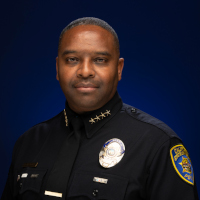
- Red Carpet Interviews - Jeannette Sandoval & Alejandro Ramos-Barajas
- Entertainment - Dee Jay MJ
Innovative practices, programs, and policies that prioritize Chicano/Latino histories, literature, and experiences across PK–12 and higher education—especially in Ethnic, Chicano, and Cultural Studies—are essential interventions in the pursuit of educational equity, cultural affirmation, and transformative pedagogy.
These initiatives challenge dominant narratives and traditional curricula that have historically marginalized or erased Chicano/Latino voices. By centering the lived realities, ancestral knowledge, and intellectual contributions of Chicano/Latino communities, educators and institutions create spaces of belonging, critical inquiry, and liberation for students of all backgrounds.
In PK–12 settings, these practices may include culturally sustaining curricula that incorporate bilingual storytelling, community-based histories, and literature by authors such as Rudolfo Anaya, Sandra Cisneros, and Juan Felipe Herrera. Classroom environments are transformed through the integration of family knowledge, local cultural landmarks, and social justice-oriented learning projects. Programs that engage students in exploring their own identities—through art, poetry, oral history, and civic engagement—help foster a sense of pride, agency, and academic confidence.
At the higher education level, Chicano, Ethnic, and Cultural Studies programs play a vital role in shaping critical thinkers, cultural workers, and future educators. These departments serve as intellectual sanctuaries—interdisciplinary spaces where theory meets praxis, and where students are encouraged to interrogate power, colonialism, migration, race, gender, and language. Innovative models include community-engaged research, cross-generational mentorship, testimonio-based learning, and curriculum that bridges classroom and community, archive and activism.
Policies that institutionalize Chicano/Latino studies—such as graduation requirements in Ethnic Studies, the creation of tenure-track lines in Chicana/o Studies, and funding for culturally grounded teacher training—are key to ensuring sustainability and systemic change. These efforts push back against tokenization, underrepresentation, and the ongoing political attacks on Ethnic Studies across the country.
Importantly, these educational innovations are not just about representation—they are about reclamation. They reclaim the right to tell our stories, to learn from our own intellectual and cultural traditions, and to imagine liberatory futures rooted in justice and community.
- Chair/Moderator: Dr. Veronica Valadez, President & Co-Founder of Ehecatl Wind Philosophy, Expert Ethnic Studies Educator and Curriculum Specialist
- Panelist: Dr. Gabriel Orosco, CEO & Co-Founder of Ehecatl Wind Philosophy, Seasoned Administrator & Educator
- Panelist: Jose Aguilera-Lopez, Teacher at Carter High School, and Doctoral Candidate-Cohort 15, Educational Leadership Program, CSUSB
- Panelist: Darlene Torres, Veteran classroom educator and coach - Chicano Studies and US History, and Dual Language Co-Coordinator at Sierra Vista High School
Curriculum Justice Panel - Walkout (snippet) - Sal Castro's Class Video
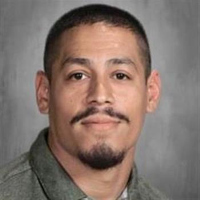
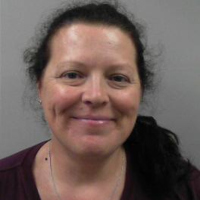
Lyricism, rap, spoken word, music, literature, cantos, corridos, and contemporary poetry that speak truth to power, challenge erasure, and build solidarity.
These expressive forms are more than artistic genres—they are tools of testimony, resistance, and radical imagination. Across generations, Chicano/Latino communities have used the power of the word—spoken, sung, written, and performed—to make the invisible seen and the unheard felt. Whether on the stage, in the street, or between the pages of a book, these forms carry the weight of history and the fire of possibility.
Rap and spoken word function as urgent declarations—raw, rhythmic, and rooted in lived experience. They confront systems of oppression while affirming identity, community, and creative brilliance. In barrio backyards and university open mics alike, young artists are redefining what it means to resist through rhyme, often blending Spanglish, code-switching, and ancestral languages into a sonic rebellion that transcends borders.
Cantos and corridos, with their deep ties to oral tradition, memory, and rural life, chronicle histories often left out of official narratives. These ballads give voice to everyday people—farmworkers, revolutionaries, migrants, madres, and outlaws. They preserve truth through melody, passing down stories from one generation to the next. Whether sung in protest or remembrance, they remain acts of cultural survival and fierce remembrance.
Contemporary poetry and literature, shaped by the legacies of authors like Gloria Anzaldúa, Luis J. Rodriguez, and Carmen Tafolla, continues to evolve, weaving together autobiography, critique, and prayer. These texts confront borders—physical, linguistic, gendered, spiritual—and make space for new ways of seeing and being. They are blueprints for healing, for dreaming beyond trauma, for building bridges across difference.
Music, whether it's hip-hop, punk, son jarocho, or reggaetón, pulses with the heartbeat of diasporic struggle and joy. It becomes a rallying cry in times of uprising, a balm in moments of grief, and a celebration of cultura every time it's blasted from a car stereo or poured into a plaza. In rhythm and sound, solidarity takes shape.
Together, these forms challenge the ongoing erasure of Chicano/Latino experiences in mainstream discourse. They demand visibility, spark dialogue, and cultivate belonging. They remind us that storytelling is not only survival—it’s revolution. In every verse, chorus, and stanza, we remember: the people have always had the power. These words are how we reclaim it.
- Chair/Moderator: Dr. Guillermo Aviles-Rodriguez, Assistant Professor in the Department of Theatre Arts, CSUSB
- Panelist: Jerry Tello, Award Winning Author, Storyteller, Healing Practitioner
- Panelist: Diosa Xochiquetzalcóatl, A Multilingual and Multidimensional Poet
- Panelist: Jag Arreola, Activist and Hip Hop Artist
* Dr. Tomás Rivera (December 22, 1935 – May 16, 1984) was a Mexican American author, poet, and educator. As an author, Rivera is best remembered for his 1971 Faulknerian stream-of-consciousness novella ...y no se lo tragó la tierra, translated into English variously as This Migrant Earth and as ...and the Earth Did Not Devour Him. This book won the first Premio Quinto Sol award. From 1979 until his death in 1984, he was the chancellor of the University of California, Riverside, the first Mexican American to hold such a position at the University of California.
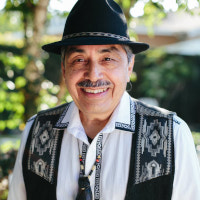
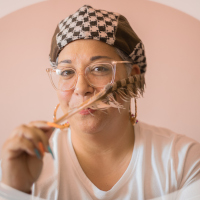
- Red Carpet Interviews - Jeannette Sandoval & Alejandro Ramos-Barajas
- Entertainment - Dee Jay MJ
The “Eastside Sound” refers to a unique, genre-blending musical movement rooted in East Los Angeles, California—a powerful expression of cultural identity, resistance, and artistic innovation that emerged from the heart of Chicano communities. Developed primarily from the 1950s through the 1980s and continuing to resonate today, the Eastside Sound draws on an eclectic mix of rhythm and blues, doo-wop, Chicano rock, soul, surf, garage rock, and eventually punk, producing a sound as layered and vibrant as the neighborhoods that birthed it.
Influenced by African American musical traditions, East LA bands like Thee Midniters, The Romancers, and Cannibal & the Headhunters infused Motown sensibilities with Chicano flavor. Their harmonies, horns, and heartfelt lyrics captured the spirit of working-class youth coming of age in a racially charged, postwar Los Angeles. These bands not only performed at backyard parties and community dances but also found national acclaim—Cannibal & the Headhunters even toured with the Beatles.
Thee Midniters, perhaps the most iconic of the Eastside Sound pioneers, blended social commentary with electrifying arrangements—using music to challenge stereotypes, uplift community pride, and chronicle the Chicano experience. Their track "Chicano Power" became a rallying cry for cultural affirmation during the civil rights era.
In the 1970s, Ruben and the Jets—a project led by Ruben Guevara and supported by Frank Zappa—picked up the torch, fusing doo-wop harmonies with theatricality and political edge, continuing the tradition of blending soulful nostalgia with pointed cultural reflection. Their work kept the Eastside Sound alive while also pushing it into experimental and hybrid territory, honoring the Pachuco aesthetic while innovating within it.
As the movement evolved, it gave rise to Chicano punk in the late 1970s and 1980s. Bands like The Brat, The Plugz, and Los Illegals erupted from the underground with a raw, urgent energy. These groups merged punk’s DIY ethos and anti-authoritarian stance with Chicano narratives—writing songs about police brutality, border politics, gentrification, and bicultural identity. Their sound was loud, unapologetic, and deeply rooted in East LA’s political realities.
Throughout all its phases, the Eastside Sound was not just music—it was a cultural declaration, born in garages, living rooms, street corners, and dance halls. It provided a soundtrack for generations navigating racial discrimination, cultural hybridity, and social transformation. The movement’s legacy can still be felt today in the rhythms of Chicano soul revivalists, Latinx punk bands, and LA’s vibrant indie scenes.
The Eastside Sound is a sonic mural of East LA—echoing with rebellion, pride, heartache, and joy. It reminds us that art created at the margins doesn’t just survive; it shapes history.
- Introduction/Moderator: Richard Yniguez — Actor and director whose breakout role in Boulevard Nights (1979) made him a prominent figure in Chicano cinema
- Featured Speaker: Little Willie G (Willie Garcia) - Legendary Chicano vocalist and songwriter, Thee Midniters
Afternoon Featured Speaker - Little Willie G Video
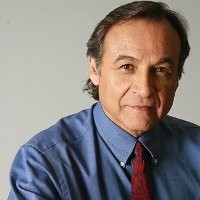
Critically examining media representation, cultural power, and the Latino presence—and persistent absence—in film, television, theater, publishing, and digital platforms is essential to understanding how narratives shape identity, belonging, and power in society. For too long, mainstream media has marginalized, misrepresented, or altogether erased Latino communities, reducing us to stereotypes, token characters, or background noise. What we see—and don’t see—on our screens and in our scripts reflects deeper structural inequities in whose stories are valued, funded, and circulated.
This work begins with interrogating the cultural gatekeepers—studios, publishers, producers, and algorithms—that control which stories get told and who gets to tell them. Despite the vast and growing Latino population in the United States, media representation remains disproportionately low, often limited to narrow tropes: the gang member, the maid, the hypersexualized figure, the undocumented migrant. These depictions flatten our complexity and erase the richness of our cultures, histories, and futures.
Latino absence is not accidental—it’s systemic. It reflects a broader cultural amnesia that ignores our foundational presence in the Americas and our vital contributions to every sphere of society. Representation is not just about being visible—it’s about being seen accurately, fully, and on our own terms. It’s about disrupting whitewashed narratives and asserting agency in storytelling.
The push for authentic, empowering, and intersectional representation demands a reimagining of who is behind the camera, in the writers' rooms, on editorial boards, and in the executive seats. It calls for Afro-Latino, Indigenous, queer, undocumented, disabled, and working-class voices to be centered—not as an afterthought, but as an artistic and political necessity.
In film and television, this means moving beyond inclusion to actual authorship—Latino writers, directors, and producers telling stories that reflect our multiplicity, from bilingual family dramas to speculative sci-fi rooted in ancestral knowledge. In theater, it means supporting original plays that speak from and to our communities, staged in both traditional and grassroots spaces. In publishing, it means making room for experimental, hybrid, and unapologetically diasporic literature—not just the “marketable” narratives palatable to mainstream audiences.
Digital platforms and social media, while often more democratized, still reflect algorithmic bias and systemic exclusion. Yet they also offer powerful tools for community storytelling, independent content creation, and media justice movements that resist invisibility and commodification.
Ultimately, this critical examination is not only about critique—it is about creation. It is about building new cultural imaginaries where our stories are not merely included but centered, honored, and celebrated. It’s about reclaiming narrative power and ensuring that future generations of Latinos see themselves reflected—not just as survivors, but as protagonists, visionaries, and storytellers of their own lives.
- Chair/Moderator: Dr. Debora Perez Torres, Assistant Professor in the Department of Communication Studies, CSUSB
- Panelist: Bel Hernandez, Founder/CEO Latin Heat Media, Founding Chair, Hispanic Coalition of Small Businesses (HCSB) Arts & Entertainment Committee, and 2025 Annual César E. Chávez Memorial Madrina de Honor
- Panelist: Enrique Castillo, Producer/Co-Director/Writer, and 2025 Annual César E. Chávez Memorial Padrino de Honor
- Panelist: - Kirk Whisler, President of the Latino 247 Media Group
- Panelist: - Johnny Murillo, Producer/Screenwriter, and Founder of Chicano Hollywood
Capstone Presentation - Latino representation in Hollywood could generate $18 billion Video
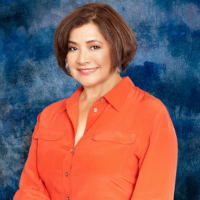
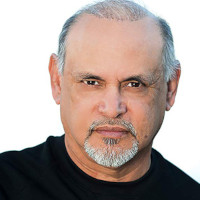
Remarks and Acknowledgements
